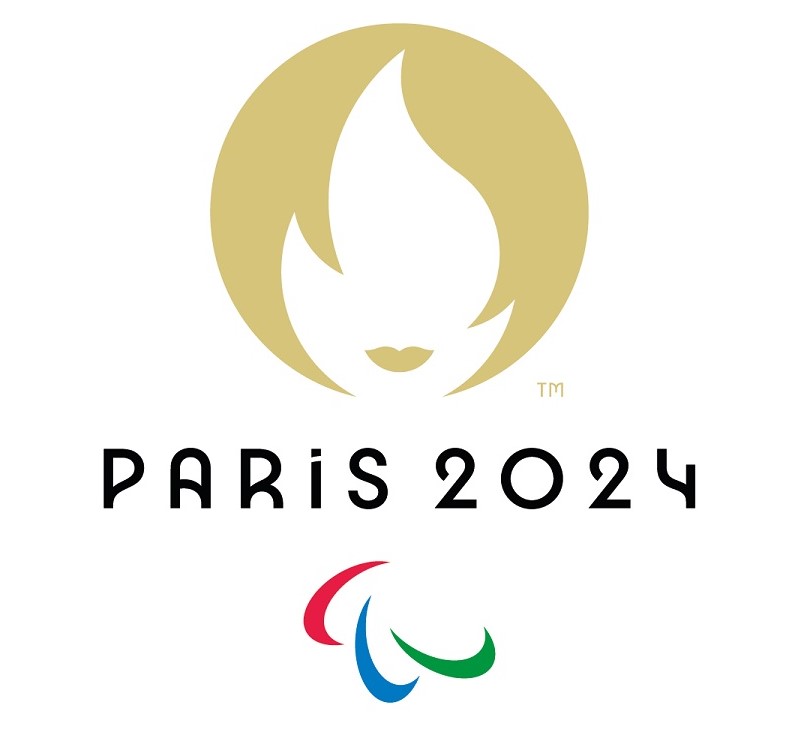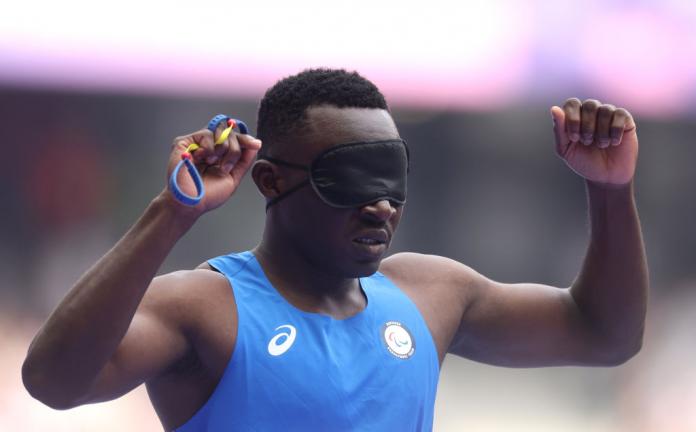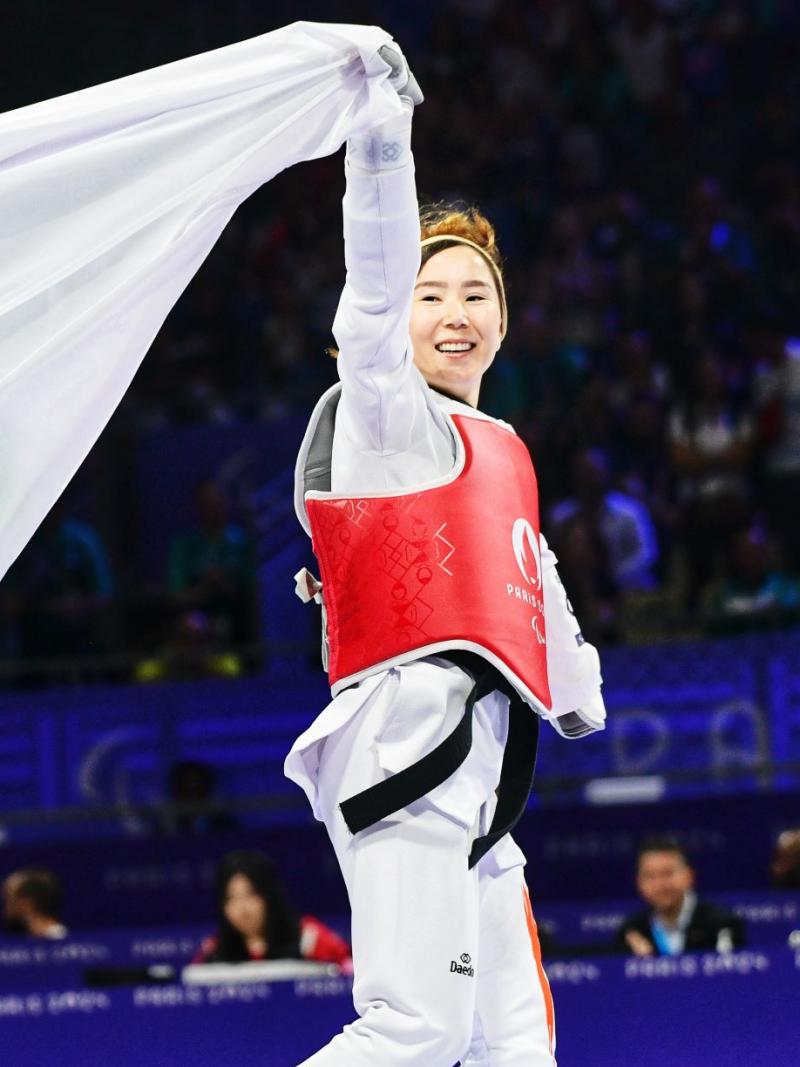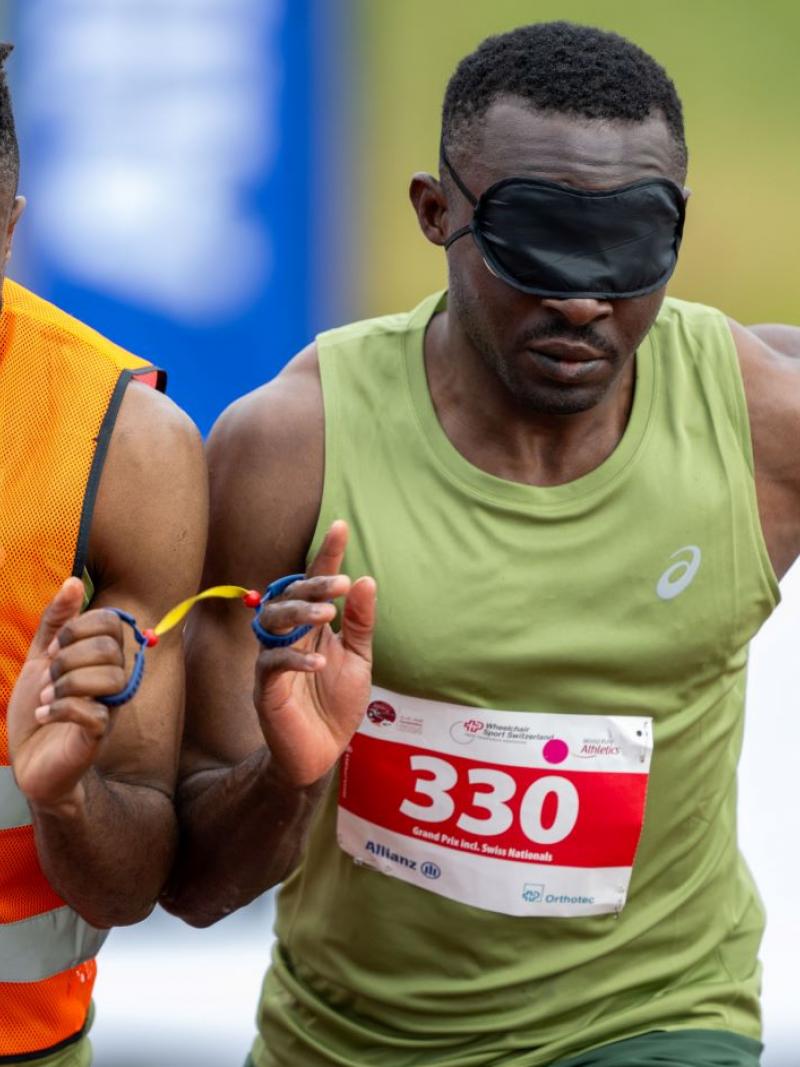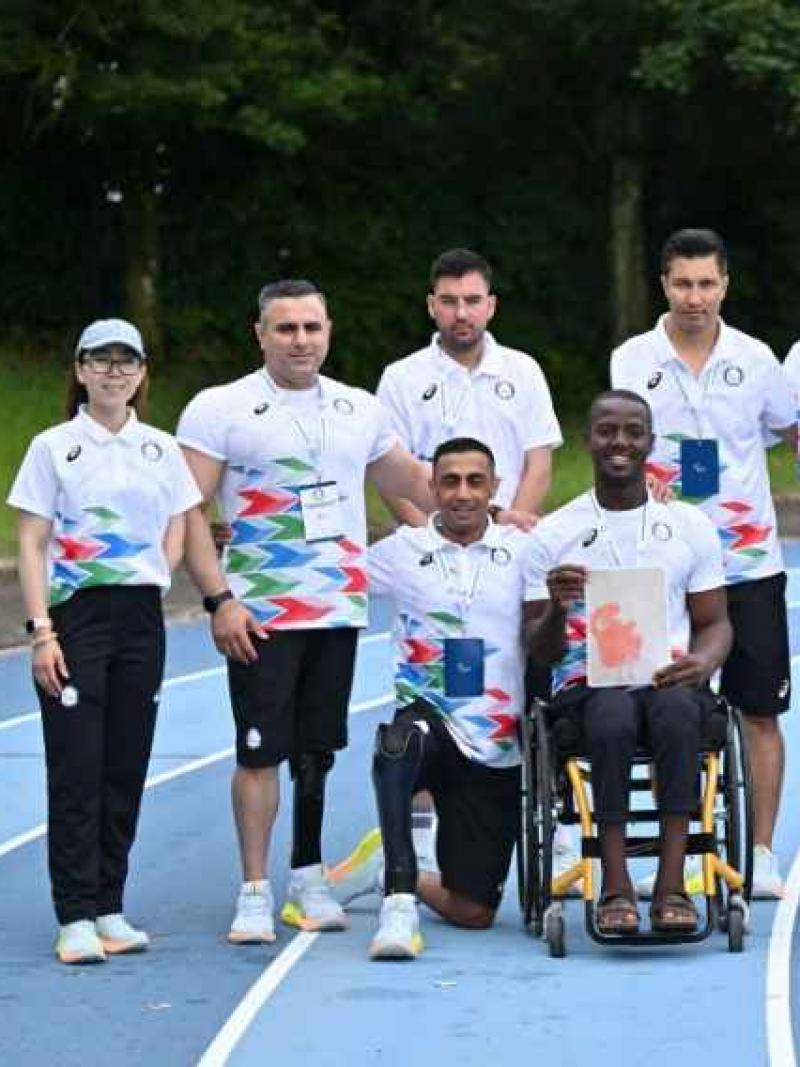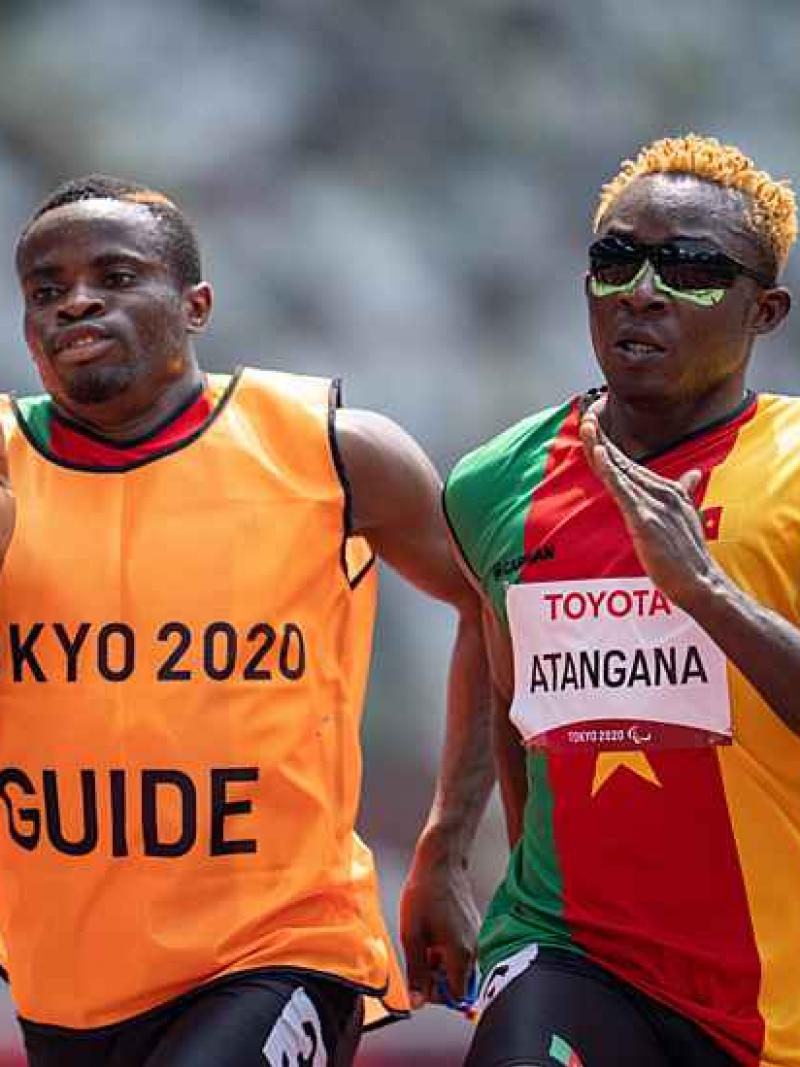Paris 2024: Atangana wins 2nd Paralympic medal for Refugee Team
Personal best time in men’s 400m T11 final means a podium finish for the vision impaired sprinter and Refugee Paralympic Team flagbearer 01 Sep 2024
Refugee athlete Guillaume Junior Atangana ran an outstanding race at Stade de France on Sunday taking third place in the men’s 400m T11 in a personal best time of 50:89, securing a historic second medal for the Refugee Paralympic Team.
“I am very happy to have this medal. It shows that the Paralympic movement is galvanising for refugees and it is an honour for me: I wrote my name in history,” said the sprinter, widely known as Junior. “The message I have for all refugees in the world is to believe in yourself!”
Junior’s success follows the Refugee Paralympic Team’s first-ever medal on Thursday when Zakia Khudadadi won bronze in her Para taekwondo K44 -47kg category.
Before the Games, Junior stated his ambitions to win a medal and to break the world record, saying, “We will show what refugees can do!”
His performances have matched his words with three consecutive personal bests over two days of track events. On Saturday, together with his guide runner and fellow refugee Donard Ndim Nyamjua, Junior achieved a personal best of 51:95 in his opening heat, followed with a second personal best of 51:03 in the semifinal to secure his spot in Sunday’s final as the second fastest qualifier behind France’s Timothee Adolphe.
The vision impaired sprinter – who competes blindfolded – will also compete in the 100 metres later in the Games, again with Nyamjua as his guide.
During his early childhood, Junior’s vision failed gradually until, by the age of 12, he had lost his sight entirely, ending his dreams of playing professional football. Running helped restore his confidence and his love of sports. “When I’d just lost my sight, it wasn’t easy for me; I was worried about walking. But when I ran, I didn’t feel worried,” he said.
Junior said that competing in Paris sends a message to other refugees and people with disabilities that “anything is possible.”
“I want to show the world that being blind doesn’t mean your life is over; you can still do great things,” he said.
United Nations Deputy High Commissioner for Refugees Kelly T. Clements said: “Watching Guillaume and his guide runner Donard secure bronze is an extremely emotional and uplifting experience for all those cheering the Refugee Paralympic Team.”
“They have kept their dreams of becoming champions alive, despite the odds against them. They exemplify the courage, perseverance and hard work that refugees put into building new lives and opportunities.”
Together with seven other Para athletes competing across six sports, Junior and his running partners are part of the largest-ever Refugee Paralympic Team, representing the hopes and dreams of 120 million forcibly displaced people around the world, including an estimated 18 million with disabilities.
This is the third time the Refugee Paralympic Team is competing at the Games. The first team, comprised of two refugee athletes, competed at the Rio 2016 Paralympics Games. The team grew to six for Tokyo 2020 and in Paris, the eight refugee athletes and two guide runners are competing in six of the 22 sports – Para athletics, Para powerlifting, Para table tennis, Para taekwondo, Para triathlon, and wheelchair fencing.
Also on Sunday, Sayed Amir Hossein Pour competed in Para table tennis, losing out to Thailand’s Phisit Wangphonphathanasiri in the opening round.
With two medals already, the Refugee Paralympic Team is surpassing the extraordinary achievement of the Refugee Olympic Team which had historic success at Paris 2024, winning its first medal, a bronze in women’s boxing.
UNHCR, the UN Refugee Agency, is partnering with the IPC, the International Olympic Committee and the Olympic Refuge Foundation to support refugees at the Olympic and Paralympic Games in Paris, with the Refugee Paralympic Team competing under the IPC flag.




